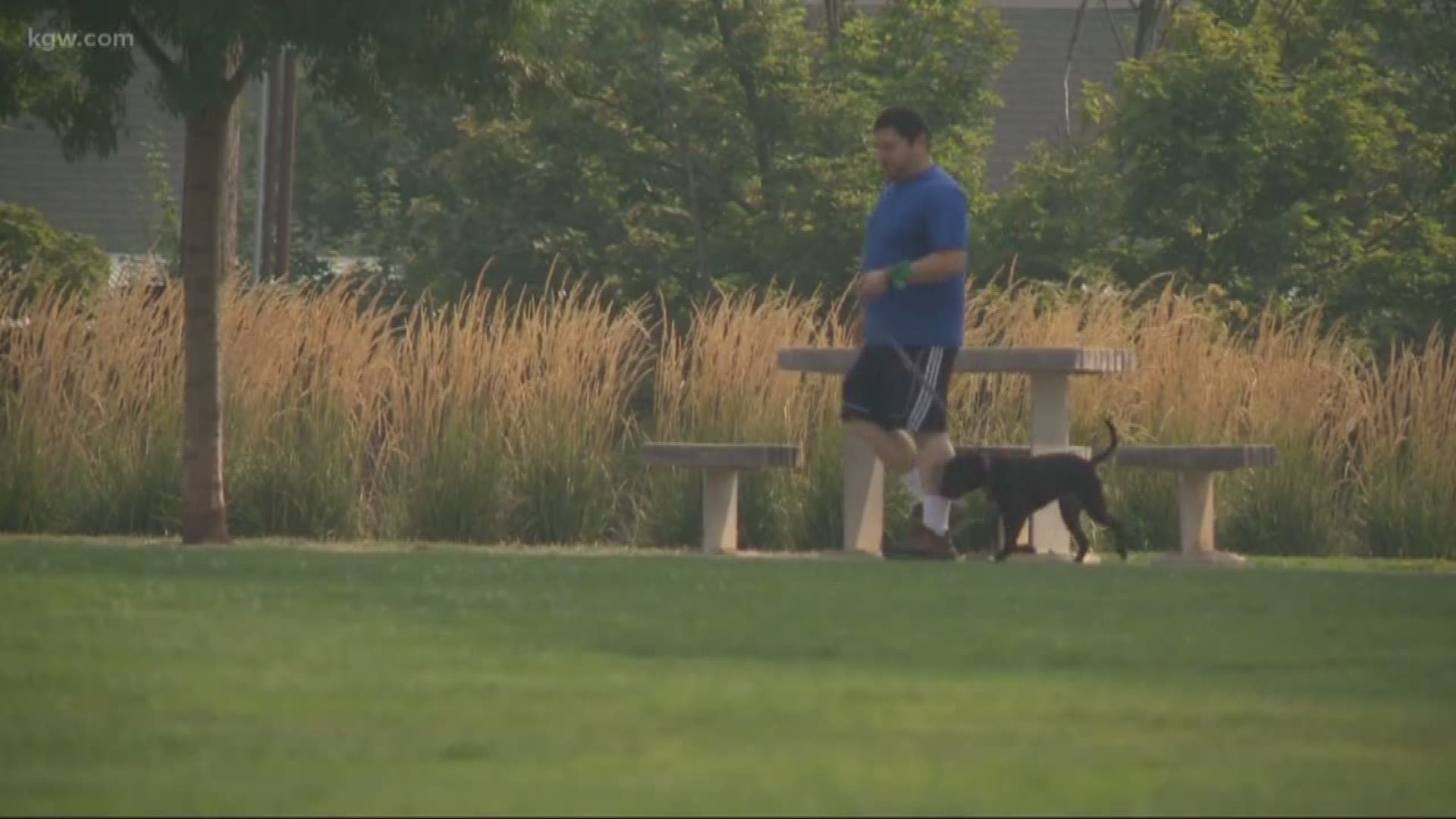PORTLAND, Ore. — The unhealthy air quality in the Portland metro area can take its toll on your pets, and even cause serious health issues.
Doctors with DoveLewis animal hospital say pet owners should limit animals’ outdoor time as the wildfire smoke continues to spread across the region. Smoke inhalation can cause disorientation and confusion, fainting, lethargy and seizures.
Both dogs and cats are at risk of respiratory issues, and doctors say certain animals are at heightened risk, especially puppies and older dogs, pets with asthma and bronchitis, and dogs with rounder faces and shorter noses (like bulldogs and Boston terriers).
DoveLewis offered these tips to keep your pets safe:
- Keep pets indoors with the windows closed.
- Use air conditioning to further filter the air, if possible.
- Outdoor bathroom breaks should be kept short.
- Avoid prolonged exercise.
- Keep pets well hydrated.
- Look for signs of respiratory stress and eye inflammation. If pets show symptoms, see a veterinarian immediately.
- Urban farm animals (goats, chickens, rabbits) are less likely to become ill, as they are used to dusty conditions. However, it’s important to monitor them for abnormal behavior or symptoms of illness. Be sure to keep them sheltered from heat.
- For homes that are smoky indoors due to the proximity to fires, consider keeping pets at a doggy day care or with a trusted friend who lives away from the area.
Signs of respiratory stress include:
- Difficulty breathing
- Unusual or excessive coughing, sneezing, vomiting or loss of appetite
- Swelling or inflammation of the mouth, eyes, skin or upper airway
- Open-mouthed breathing, especially in cats
- Weakness/lethargy
- Uncoordinated walking/unable to stand
- Increased salivation
Owners should seek immediate veterinary care for their pets if they show any of the above symptoms.

